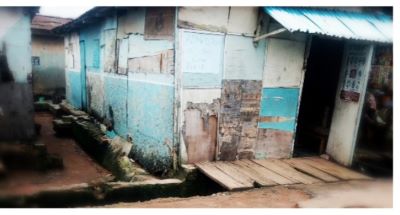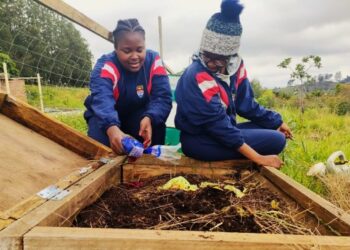Jeleosimi — the Yoruba term meaning “let the household have peace”,reminds me of the olden days when parents send their children away to low cost schools. If you speak of the headstrong children and the ones who plays here and there, their parents have peace when they take them to Jeleosimi.
In the bustling neighbourhoods of Lagos, the familiar sound of children’s laughter drifts from a small bungalow tucked between rows of houses. Inside, a group of toddlers clap, sing, and recite rhymes in unison while their caregiver, known affectionately as Aunty Bola, watches over them with a smile.
Welcome to Jeleosimi — the Yoruba term meaning “let the household have peace.” Once regarded as an old-fashioned childcare option for working-class families, Jeleosimi is making a quiet but powerful comeback. As the cost of formal education spirals beyond the reach of many Nigerians, parents are returning to this community-based solution for early childhood care.
For decades, Jeleosimi served as an informal childcare system where grandmothers, retired teachers, or neighbourhood minders looked after children while parents worked, charging modest fees. But with the rise of private nursery schools and “early learning centres,” many families abandoned the practice — until now. Today, Jeleosimi is back, driven by economic necessity.
“When school fees reached ₦350,000 per term, I had no choice,” said Mrs Chizoba Darlington, a mother of three and petty trader. “I found a Jeleosimi in my area where I pay ₦25,000. My child is cared for, fed, and learning the basics. That’s all I need for now.”
For Mrs Darlington and countless others, the revival of Jeleosimi is less about nostalgia and more about survival. Across Nigeria, inflation, fuel price hikes, and a weakening naira have turned early childhood education into a luxury. Private schools now charge between ₦200,000 and ₦900,000 per term — even for kindergarten.
For parents like Mr Olorunfemi Bamikale, a driver in Ikeja, Lagos, the arithmetic no longer adds up. “They asked me to pay ₦859,700 for my twins’ kindergarten,” he said, shaking his head. “That’s more than I earn in a year. I took them to a Jeleosimi instead. The woman there takes care of ten children, teaches them songs and counting. It may not be fancy, but it’s better than nothing.”
Women like Aunty Bola are filling the gap left by unaffordable schools. Her modest living room doubles as a classroom, decorated with colourful charts, old storybooks, and alphabet posters. She charges ₦20,000 per term — a fraction of what formal nurseries demand. “Parents drop their children here by 7 a.m. and pick them up after work,” she explained. “I give them breakfast, teach them ABCs, and they play. Things are hard, so people are coming back to Jeleosimi.”
She recalls when only low-income families used her services. Now, she sees children of civil servants and small business owners — a sign of how deep Nigeria’s economic strain runs.
Not everyone celebrates the Jeleosimi resurgence. Some education experts worry about the quality of learning and safety in informal settings. Mrs Aduramigba Okunbor, a private school teacher in Surulere, believes the fee hikes are justified. “Running a school today is expensive,” she said. “We pay high rent, buy fuel daily, and maintain government standards. Many schools are barely surviving.”
However, education analyst Dr Kemi Odewale warns that the growing popularity of Jeleosimi reflects a national crisis. “This is what happens when the economy squeezes the middle class,” she noted. “Parents are not rejecting quality education — they simply can’t afford it. The danger is that more children will miss out on structured early learning.”
Still, Jeleosimi remains a symbol of community resilience — a reminder that even in hardship, Nigerian families find ways to adapt. “At least my children are happy,” said Mrs Darlington, smiling as she watched her toddler run into her arms. “Education starts with love and care. We’ll manage until things improve.”
For many families, that sentiment captures the spirit of Jeleosimi: a grassroots response to a national crisis — born not of luxury, but of love and survival.



















































































 EduTimes Africa, a product of Education Times Africa, is a magazine publication that aims to lend its support to close the yawning gap in Africa's educational development.
EduTimes Africa, a product of Education Times Africa, is a magazine publication that aims to lend its support to close the yawning gap in Africa's educational development.